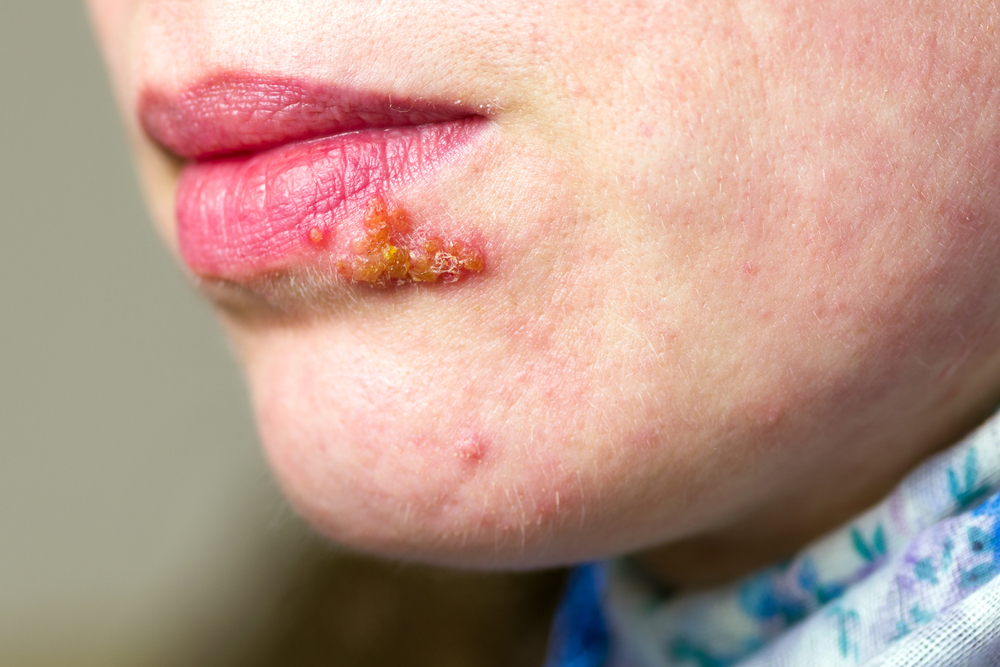An undetected and untreated sexually transmitted infection can be a pain to deal with. Not only do you have to worry about safe sex but now a doctor has told The Irish Times about how the STI herpes can be passed on to others regardless of whether or not you're having safe sex.
The STI talk came to fruition after singer Usher had a lawsuit brought against him about the herpes virus. Three people have accused Usher of knowingly exposing them to the herpes virus before engaging in unprotected sex.
According to Dr Shirley McQuade, Medical Director of Dublin's Well Woman's Centre, who spoke to The Irish Times, herpes is a viral infection passed on from skin to skin contact. The virus is spread through fluids found within herpes sores during sex, but also during any kind of sexual intimacy. This means that even though you are practicing safe sex you can still pick up the virus from the skin that is not protected by condoms etc. Here's a breakdown of what the herpes virus is and what you need to know about it.
What is herpes?
There are two different types of herpes: herpes type 1 (HSV-1) and herpes type 2 (HSV-2). One is recognised through cold sores and is referred to as oral herpes whereas type 2 is often categorised as genital herpes. Either type can present itself anywhere on the body. For example, a person who suffers from cold sores can pass the herpes type one virus onto their partner's genitals through oral sex. Also, a person may not display any symptoms but carry the virus. If a person has had herpes outbreaks in the past they can pass on the virus also, even if they are not having an outbreak at the time of sexual contact.
Herpes symptoms
The majority of the public associate the symptom of herpes with ulcers and cold sores but it's much more complex. Here are just some of the symptoms you may experience:
- swollen lymph nodes in the groin area
- Flu-like symptoms
- Discomfort for women when they urinate
- Small cuts on the skin
Facts and statistics you need to know about herpes
- You can get herpes anywhere on the body. A small lesion on a finger or thumb can be caused by the herpes virus.
- One-in-five people infected with herpes never display symptoms but can still pass it on to sexual partners.
- Herpes is common in Ireland and a fifth of people have been exposed to herpes type 2.
- Standard STD testing does not pick up herpes. Blood tests detect HIV, hepatitis B, hepatitis C, chalmydia, gonorrhoea and syphilis. Herpes is diagnosed by taking swabs of the affected area if ulcers or lesions present.
- Outbreaks are also more common when a woman is on her period or during stressful periods.
- The first outbreak is often the worst but should reduce in severity over time.
- Sufferers of herpes type 2 are more likely to have re-occurrences of the virus than sufferers of type 1.
- You might not have picked up the virus from your current partner.
- You should let your doctor know you have the virus if you are pregnant.
- Herpes sufferers should also take care around newborns as the virus can pose a risk to their health.
- Eventually, the infection will burn out and the immune system will get to grips with it.
How do I manage the herpes virus?
Dr Mc Quaid recommends if you're suffering regular occurrences you can manage the virus in a number of ways, for instant, taking daily antivirals during stressful periods, such as exam times. Patients who test positive for herpes are treated with a five-day course of anti-viral medication, and an anesthetic gel to help with the pain.
If you're concerned about the stigma surrounding herpes after you've caught the virus, you shouldn't be. It's a common STI in Ireland and the Well Woman Centre offers to counsel you about the diagnosis.
Remember to discuss your sexual health with your partner and let them know if you've had herpes before. If you or a friend are concerned about an STI infection you can avail of free testing from the St. James clinic. Click here for further details.

 cture>
cture>




